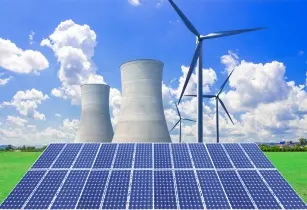At this year’s United Nations Climate Change Conference (COP27) in Egypt, the International Atomic Energy Agency (IAEA) released a comprehensive report on Nuclear Technologies and Climate Adaptation in Africa, describing how these technologies are already being widely used to build resilience on the continent
Africa has contributed very little to greenhouse gas (GHG) emissions and yet key sectors are already experiencing the damaging consequences of climate change. The United Nations has observed that increased temperatures or drought have sharply reduced agricultural productivity growth in Africa in the past six decades and caused regional economic losses of US$70bn in the past 50 years.
“In nuclear science and its applications we have the tools to adapt to climate change conditions,” said IAEA director general Rafael Mariano Grossi. “The IAEA is at the centre of global efforts to make sure no one is left behind when it comes to benefiting from these indispensable assets.”
Over the past 10 years, the IAEA has carried out almost 50% of its climate change adaptation projects in Africa, more than in any other continent, aimed at increasing resilience and reducing vulnerabilities in multiple sectors. This includes land use management, soil erosion, climate-smart agriculture, food production systems, improved crop varieties, analysis of GHG emissions, water resource management, coastal protection and ocean change monitoring. The report describes various areas of intervention, supported by case studies offering concrete examples of how nuclear science and technology have benefitted Africa.
The report highlighted IAEA projects that support countries in Africa in cultivating and exporting food, including growing drought-tolerant crops and applying the sterile insect technique (SIT) to eradicate insect populations, such as tsetse flies, fruit flies and mosquitoes, that harm both human health and the economies.
IAEA projects have also strengthened Africa’s capacity to collect and analyse data on the quality of water in river basins and the ocean, allowing policymakers to put measures in place for better resource management, including water security in the Sahel and adapting to ocean acidification in coastal areas, which aims to protect the African fishing industry, and thus prevent environmental and social crises.
The report further emphasised the importance of partnerships in scaling up such projects. COP27 is an opportunity to forge and strengthen partnerships, and to raise awareness in decision making bodies, development organisations and financial institutions of the potential of nuclear science and technology to feature in national strategies, plans and programmes, including agri-food strategies and disaster risk reduction planning.





